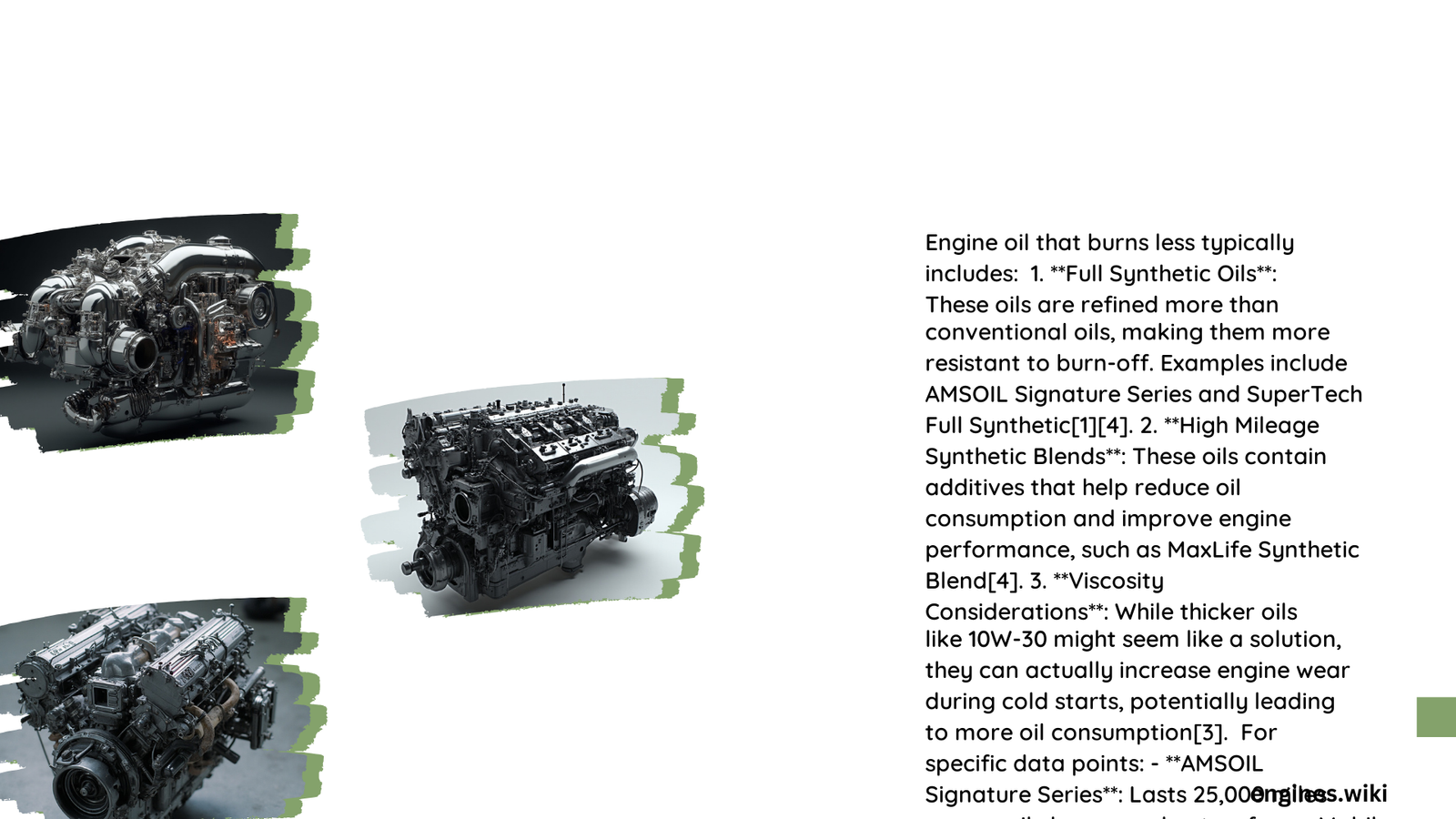Engine oils with lower viscosity and advanced synthetic formulations demonstrate significantly reduced burn rates, offering vehicle owners improved fuel efficiency, enhanced engine protection, and extended lubricant longevity. Modern automotive engineering has revolutionized lubricant technology, enabling drivers to select engine oils that minimize consumption while maximizing performance across diverse operating conditions.
What Makes an Engine Oil Burn Less?
How Do Viscosity Ratings Impact Oil Consumption?
Viscosity plays a critical role in determining oil burn rates. Lower viscosity oils like 0W-20 and 5W-30 demonstrate superior performance in reducing oil consumption through several key mechanisms:
| Viscosity Grade | Cold Temperature Performance | Operating Temperature Stability | Oil Consumption Potential |
|---|---|---|---|
| 0W-20 | Excellent | High | Low |
| 5W-30 | Very Good | Moderate to High | Moderate |
| 10W-40 | Good | Lower | Higher |
Key Factors Influencing Oil Burn Rates
- Molecular Structure
- Synthetic oils feature more uniform molecular structures
- Reduced impurities lead to better thermal stability
-
Enhanced resistance to molecular breakdown
-
Chemical Composition
- Full synthetic oils provide superior protection
- Advanced additive packages minimize volatility
- Better performance under extreme temperatures
Why Are Synthetic Oils More Effective?
Synthetic engine oils offer remarkable advantages in reducing oil consumption:
- Thermal Stability: Maintains consistent viscosity across temperature ranges
- Lower Volatility: Reduces oil evaporation and burn-off
- Enhanced Lubrication: Provides superior engine protection
- Fuel Economy Improvement: Up to 2-5% efficiency gains
What Performance Metrics Matter?
Vehicle owners should consider multiple performance indicators when selecting low-burn engine oils:
- NOACK Volatility Test: Measures oil evaporation rates
- Cold Cranking Viscosity: Indicates oil flow at low temperatures
- High-Temperature Protection: Ensures stable lubrication under stress
Cost vs. Performance Analysis
While synthetic oils represent a higher initial investment, their long-term benefits often justify the expense:
| Oil Type | Initial Cost | Longevity | Burn Rate | Maintenance Frequency |
|---|---|---|---|---|
| Conventional | Low | Short | High | Frequent |
| Synthetic Blend | Moderate | Moderate | Moderate | Moderate |
| Full Synthetic | High | Long | Low | Less Frequent |
Expert Recommendations
Automotive lubrication specialists consistently recommend:
– Consulting vehicle manufacturer specifications
– Selecting oils matching recommended viscosity grades
– Considering driving conditions and vehicle age
– Prioritizing quality over cost
Technical Considerations for Low Burn Oils
- Turbocharger Compatibility: Synthetic oils provide superior protection
- High-Mileage Engine Requirements: Specialized formulations available
- Additive Technology: Critical for reducing wear and consumption
Final Technical Insights

Modern engine oils represent a sophisticated blend of chemical engineering and automotive technology. By understanding viscosity ratings, molecular structures, and performance metrics, drivers can make informed decisions that optimize engine performance and minimize oil consumption.
Reference:
– SAE International Viscosity Standards
– American Petroleum Institute Oil Ratings
– Society of Automotive Engineers Research
